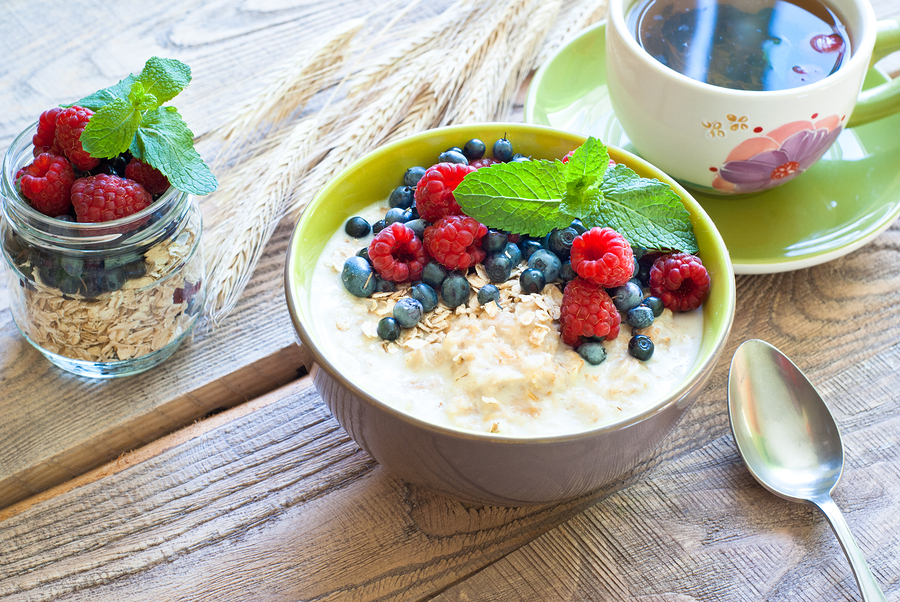- Make It Yourself Lavender Heart-Shaped Bath Bombs!
- 20 Things You Never Knew About “Down There”
- 12 Best Foods For Those Suffering From Arthritis Pain
- 12 Personal Hygiene Mistakes Almost Everyone Makes (Mom Never Told You About #4!)
- 15 Medicinal Plants And Herbs From The Cherokee People
- 12 Mind-Blowing Benefits Of Drinking Coconut Water During Pregnancy
- 12 Outstanding Winter Foods That Won’t Fatten You Up Like A Christmas Turkey
Can A Good Breakfast Make You Smarter?
We’ve all heard the old adage, “Breakfast is the most important meal of the day.” But so many of us neglect to take this advice we’ve heard so many times since childhood. In today’s world of rush hours, 60-hour workweeks and 24/7 connectivity, it is all too common for people to skip meals. The most common meal to be missed, of course, is breakfast, and if a typical overworked person does manage to eat something, it’s often just a quick donut on the way out the door.
Recent research is showing that this habit of eating a poor breakfast or no breakfast at all can affect our cognitive performance and productivity in a negative way, and that just taking a little time to eat something good in the morning can make a huge difference.
Breakfast’s Effects on Academic Performance
A study by Cardiff University in Wales was conducted in 2014 to determine just how much difference the quality of breakfast caused in academic performance. Researchers examined the test results of 5,000 children aged 9 to 11 from over 100 different primary schools.
Students were asked to report the types of foods and how much they ate, and what times they ate it over a 24-hour period. From this data, researchers would be able to determine what kinds of foods students were eating, what, if any, meals they were missing, and if there was any correlation with scores on the Key Stage 2 Teacher Assessment (a standardized academic performance test) which was held 6 to 18 months later.
The study confirmed what everyone probably knew intuitively all along: the students who reported eating high quality breakfasts had the strongest academic performance. These students were twice as likely to achieve above average scores on the Key Stage 2 Assessment. The students who skipped breakfast had lower scores.
The type of breakfast (and diet in general) played a significant role. The roughly 20 percent of students who reported eating unhealthy breakfasts like crisps (potato chips) or sugary foods did not appear to gain any kind of cognitive boost from their morning meal.
According to registered dietitian Diane Pietrocarlo, it is a good idea to eat a nutritious breakfast within 2 hours of waking. “Your body has been sleeping all night and perceives that it needs to be fueled. If you don’t get it fueled, it perceives that you are keeping fuel from it, and it will lower your metabolic rate. Eating breakfast sets you up for having a healthy rest of the day.”
Continue to Page 2
Skipping Breakfast Affects Adults Too
It’s not just kids who should remember to eat in the morning. Adults are just as susceptible to the effects of skipping breakfast as children, and due to their typically busier schedules, are more likely to do so.
Think about what the term “breakfast” means. When you eat in the morning, you are literally breaking a fast. When you sleep, you’re not eating, so you effectively are fasting every night. By the time a person wakes up, his or her stomach is usually empty, and the body is waiting for nutrients to be replenished. When you skip this meal, you are denying your body these nutrients.
In this state, your body is hungry, your blood sugar is low, and your energy levels are likely to be much lower. People who skip breakfast are more likely to be tired, irritable and experience more difficulty focusing on their work. Like academic performance, job performance will suffer as well.
Examples of Good Versus Bad Breakfasts
To start your day off right, you want high quality nutrients that will provide you with energy and leave you with a clear, focused mind.
Aim for proteins like eggs and fresh fruit or vegetables with breakfast. An omelet is a great choice. Juice (preferably freshly made) is a good choice, as is a blended shake. Yogurt with raw honey is a good option.
If you’re really in a rush, a protein bar will get the job done.
Avoid refined sugars and simple carbs. These are the foods that are most likely to give you a brief spike in energy, followed by a crash, during which you’ll experience fatigue and a foggy head. While many such foods, like sugary donuts and pastries, are traditionally thought of as breakfast foods, you might want to avoid them if you have important work to do later that day. It’s okay to occasionally indulge, just save it for an “off” day.
READ ALSO: Start Your Day With This Powerful Breakfast Recipe From Dr. Mercola Video
Try making these simple changes in your diet and see if it doesn’t boost your performance throughout the day.
References:


































